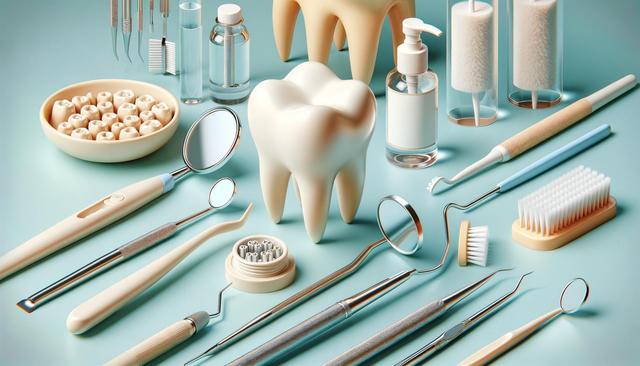Rising Demand for Preventive Dental Care
As awareness of oral health continues to grow, there has been a noticeable shift toward preventive care in dentistry. Dental hygienists are at the forefront of this trend, providing essential services that help patients maintain healthy teeth and gums. These professionals are trained to perform cleanings, assess oral health, and educate patients on proper dental hygiene practices. This proactive approach helps reduce the need for more invasive procedures and contributes to long-term oral wellness. With more people searching for a “Dentist Near Me” or trying to “Find Dentist Near Me” for regular check-ups, the role of dental hygienists has become indispensable in clinics across the country.
Increased demand for preventive services also means that dental offices are expanding their teams. Hygienists help dentists by managing routine care, which allows the dentist to focus on more complex procedures such as “Teeth Dental Implants” or restorative treatments. This division of labor not only improves efficiency but also enhances the patient experience, as hygienists often build long-term rapport with their patients.
Why More Are Looking Into Dental Hygiene Programs
The appeal of a dental hygiene career lies in its combination of job security, competitive salaries, and the ability to make a meaningful difference in people’s lives. Many individuals are exploring dental hygiene programs because they offer:
- Relatively short training periods compared to other healthcare professions
- Opportunities to work in various settings, including private practices, public health clinics, and educational institutions
- Flexibility in scheduling, which can support work-life balance
- Steady job growth and strong employment outlook
Moreover, dental hygiene programs often incorporate hands-on clinical experience, allowing students to build confidence and practical skills before entering the workforce. With a growing number of people interested in oral health and seeking services like “Teeth Dental Implants,” the demand for trained professionals is expected to remain strong.
The Evolving Role of Dental Hygienists
Dental hygienists today do much more than just clean teeth. Their responsibilities have expanded to include tasks such as conducting oral cancer screenings, applying sealants and fluoride, and assisting in the management of periodontal diseases. These professionals are integral to the patient care process and often serve as the first point of contact during dental visits.
As the dental industry continues to evolve, hygienists are increasingly involved in interdisciplinary care, working alongside other healthcare providers to support overall wellness. Their role in patient education is particularly vital, as they help individuals understand the connection between oral health and systemic health conditions like diabetes and heart disease. This expanded scope makes the profession more dynamic and appealing to those entering the field.
Career Growth and Opportunities
With a growing emphasis on preventive care and patient education, the career trajectory for dental hygienists is promising. Many professionals find opportunities for advancement in roles such as:
- Dental office management
- Public health advocacy
- Dental hygiene education and research
- Product development and sales for dental care companies
In addition, some states in the U.S. have expanded the scope of practice for dental hygienists, allowing them to work independently in certain settings or perform additional procedures. This increased autonomy opens new doors for career development and entrepreneurship. As people continue to search for accessible dental care through queries like “Dentist Near Me” or “Find Dentist Near Me,” hygienists will remain a foundational part of the oral healthcare system.
Making a Positive Impact in the Community
One of the most rewarding aspects of being a dental hygienist is the opportunity to make a tangible difference in people’s lives. By helping patients maintain healthy smiles and prevent disease, hygienists contribute to better overall health outcomes. Many professionals also engage in community outreach, providing care and education to underserved populations. This aspect of the job fosters a deep sense of purpose and fulfillment.
In addition to clinical practice, dental hygienists often participate in public health initiatives, school programs, and nonprofit organizations. These efforts not only improve access to care but also raise awareness about the importance of oral health. With the ongoing demand for services like “Teeth Dental Implants” and other dental treatments, hygienists serve a crucial role in bridging the gap between patients and the broader healthcare system.
Conclusion: A Career Path Worth Considering
For those interested in healthcare and looking for a meaningful, stable career, dental hygiene offers a compelling option. As more people seek preventive care and search terms like “Dentist Near Me” or “Find Dentist Near Me” become increasingly common, the need for skilled dental hygienists continues to rise. With flexible career paths, impactful work, and a solid job outlook, it’s easy to see why dental hygiene programs are attracting more attention than ever. Whether you’re just starting your career journey or considering a shift into a healthcare-related field, becoming a dental hygienist could be a rewarding next step.




Leave a Reply